By: Valeria Zapata-Giraldo and Karla Ramirez
Two of CONDJUST’s PhD students, Valeria Zapata-Giraldo and Karla Ramirez, attended the International Society of Ethnobiology Congress from May 15th to 19th in Marrakesh, Morocco. The 18th edition of the conference focused on the theme “Biodiversity & Cultural Landscapes: Scientific, Indigenous, and Local Perspectives” and was held at Cadi Ayyad University. We found it relevant to present the progress of our first few months of PhD research to the ethnobiology community within the framework of #ConservationDataJustice in the Latin American context.


There were over 400 attendees to the congress, from more than 60 countries between academics, activists, artists and practitioners. We both presented our posters on two different dates. Karla´s poster was related to the conceptual and theoretical framework she is putting together for her PhD research based on critical theory from Latin America and post/de/anti-colonial scholars and activists.
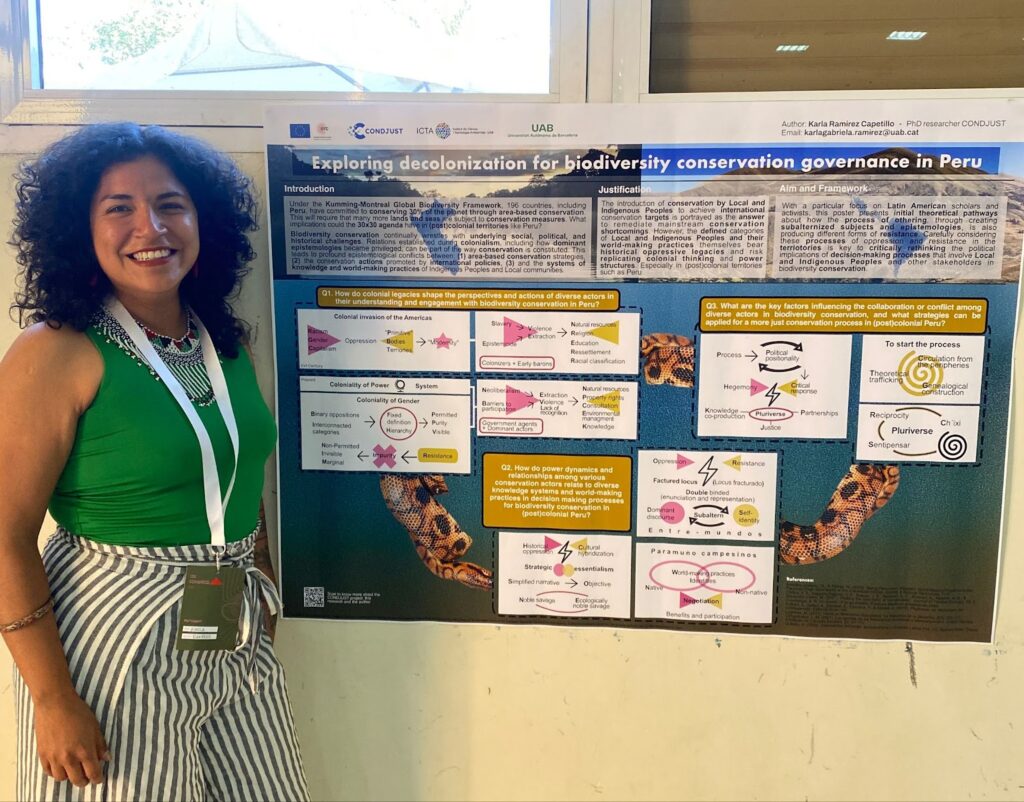
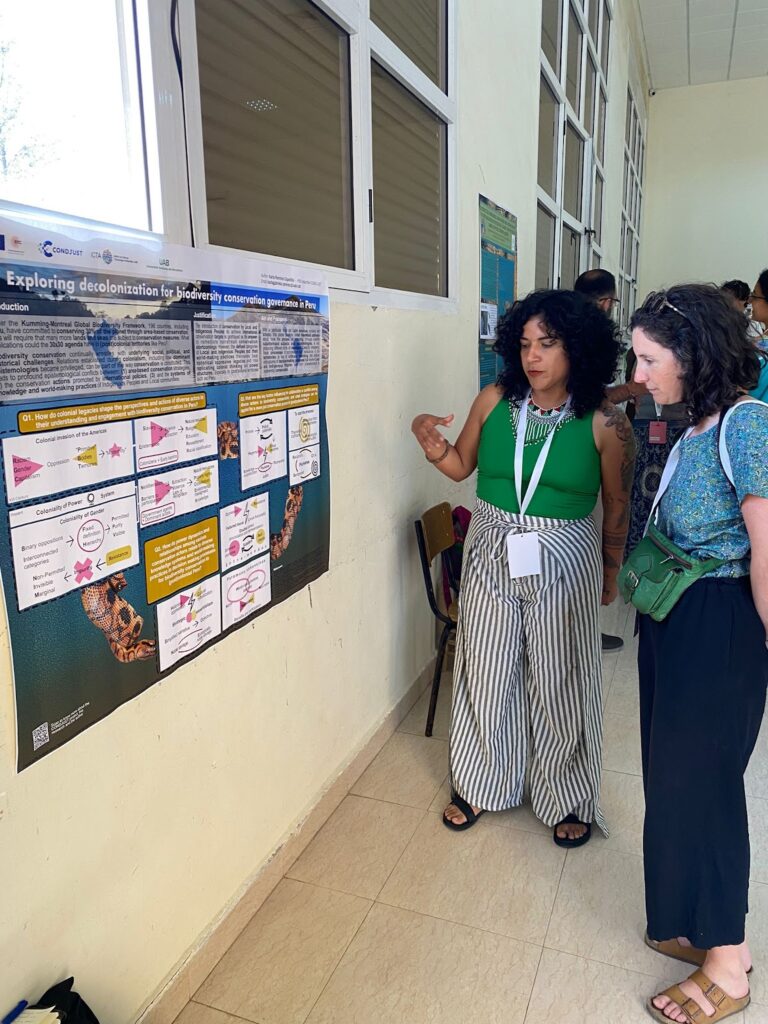
On the other hand, Valeria’s poster presented her research proposal on “Data Justice in Colombia’s Area-Based Conservation Policy,” emphasising the process of designation and reporting of Other Effective Conservation Measures (OECMs) in the country. It was also an opportunity to discuss and share the theoretical framework from which she will approach her research, drawing from critical theories of social justice, environmental justice, and epistemic justice.
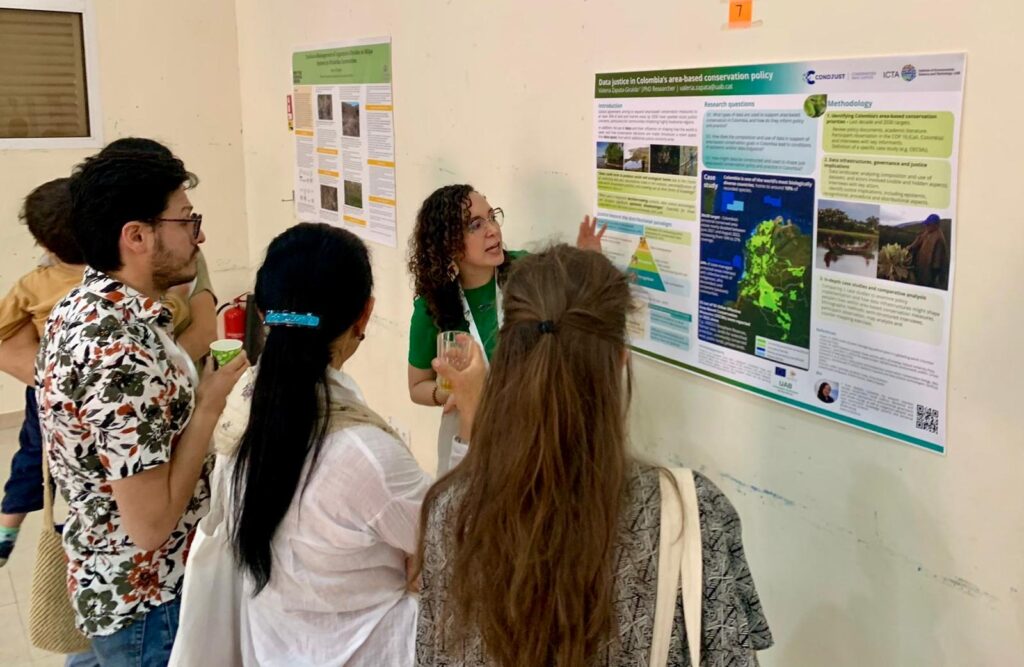
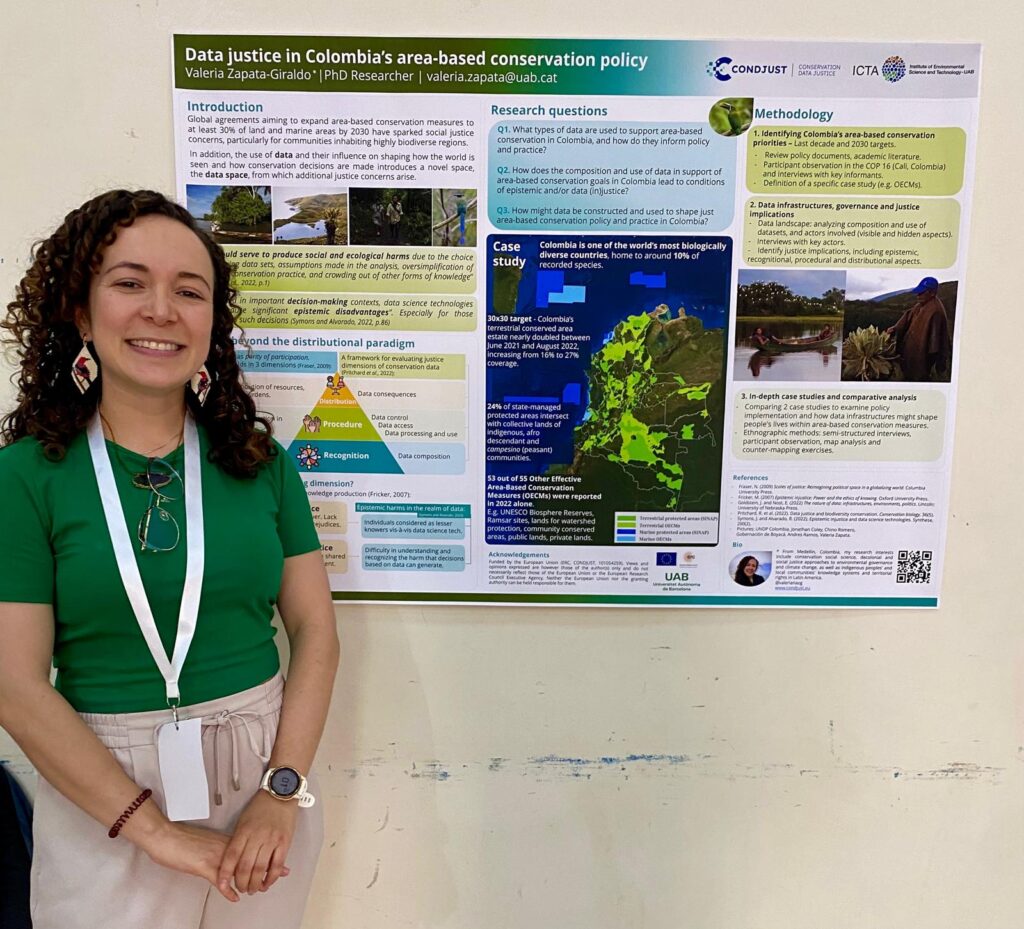
It was a great setting to engage in meaningful conversations with attendees, to meet other PhD students who were in different stages of their journey, to find a place for our early steps as contributions to the scientific community and also to resonate with the wider discussions of injustice and decolonisation that were brought up all along the congress.
Additionally, it was a fantastic chance to introduce the emerging field of data justice in conservation to the ethnobiology academic community. Throughout the discussions, we noticed a lot of curiosity and interest from the conference participants about how data justice issues could be relevant to their research. This engagement highlighted the relevance and potential impact of considering data justice in a wide range of ethnobiological studies.

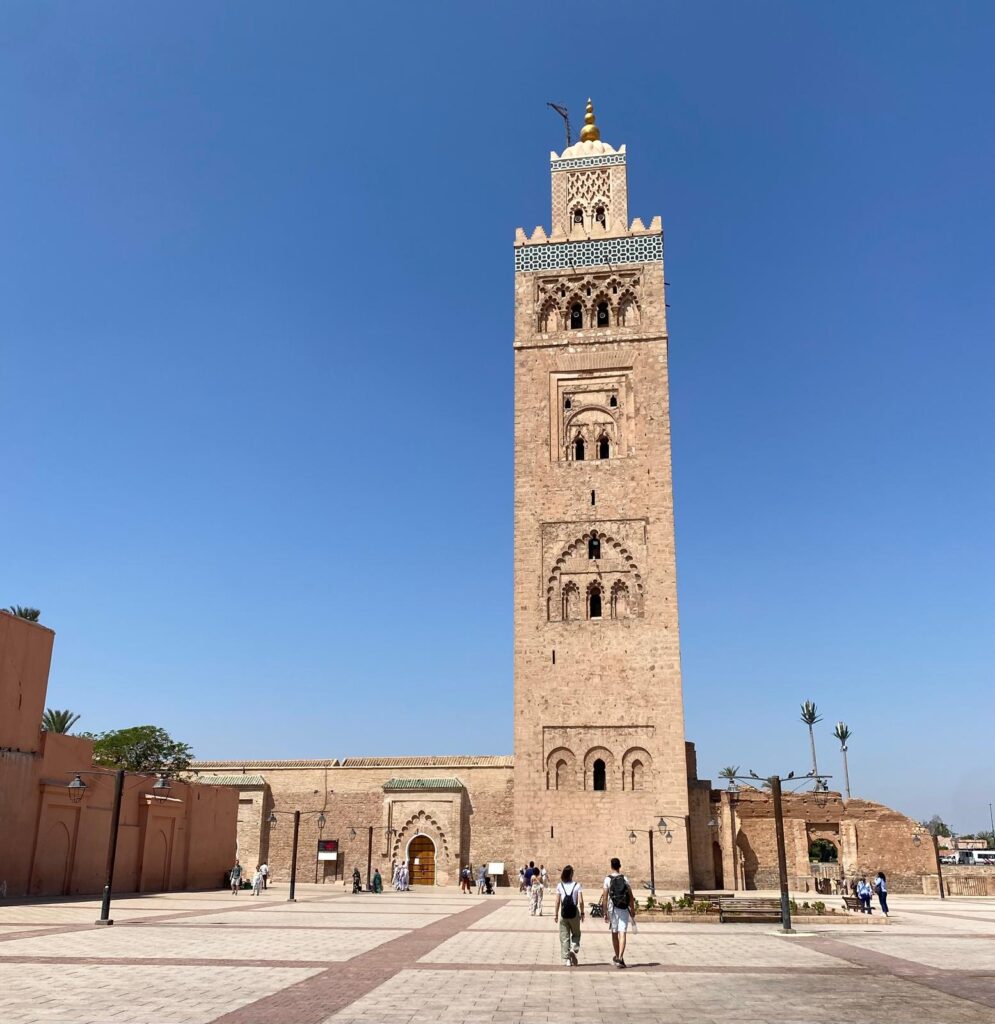
We are grateful for the opportunity to participate in this conference and visit the vibrant city of Marrakech. The warmth of the terracotta colours of the mountains and on every façade, the music and diversity of the Medina, and the aromas and spices in every dish, made our academic stay incredibly enriching and special!